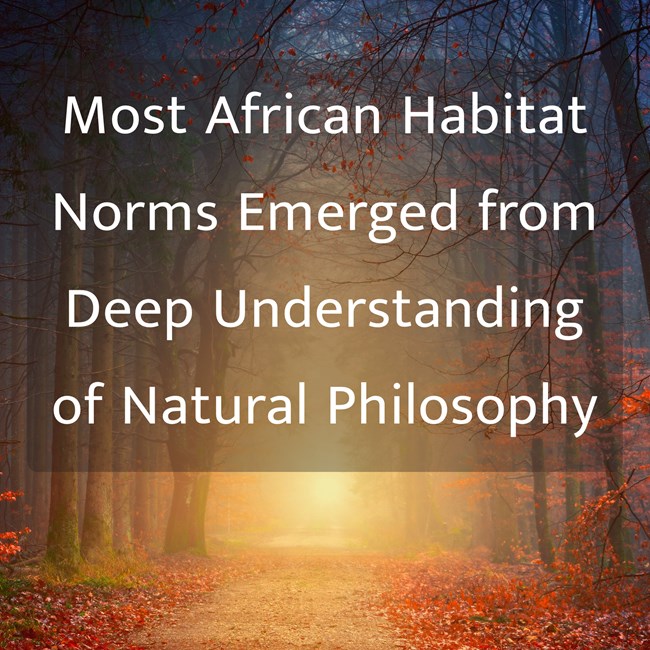
Sure, great feedback on my piece on African culture and how some of the norms emerged as a way to preserve communities. Of course, the ancient African culture had some unfortunate components, due to lack of knowledge, just as European and American cultures also did. As twins were killed in Africa, European culture enslaved humans and treasured on genocides. So, across human history, many bad things happened. But as knowledge systems deepen, the liberation of the mind marches.
As many noted in the comments, someone has to explain some of the norms so as to help the new generation to understand better. In other words, when they say “do not fish in that stream”, it may not be connected to any belief system or deity. I can give you cases, using streams in Ovim, my village.
In Ovim, while the Tantuta Ugwunta stream has an ordinance of not to fish therein, the Iyinta Obayi banned both fishing and using large buckets to scoop water. Examining the two streams, Tantuta flows from a higher level to a lower one which means there was no need to restrict on the scooping method since if you stir the lower level, it would not affect the source of the freshwater. But when you go to Ide (a bigger water body), all those rules vanish, allowing you to fish and do whatever you want!
Register for Tekedia Mini-MBA edition 18 (Sep 15 – Dec 6, 2025): registration continues.
Tekedia AI in Business Masterclass opens registrations.
Join Tekedia Capital Syndicate and co-invest in great global startups.
Register for Tekedia AI Lab: From Technical Design to Deployment.
The implication? The fishes of smaller streams are protected while the larger ones are not. But in reality, examining the structures of the streams, you can draw one conclusion: the elders do not want you to fish them so as not to mess up a shallow, slow-flowing freshwater for the community. But in the big water bodies like the Ide and Nne-ochia, you can do whatever you want because they flow fast and are big!
(Ask yourself, why are the protected fishes for the gods always in the small streams and not in the big ones?)

Check that big tree which everyone is tasked not to harm. Look at the geography and you will notice that it is pivotal in controlling gully erosion. If you destroy that tree, you can wipe out another community because of gully erosion. In Ovim again, the Akpurachi tree in Ugwunta village square protects the community from erosion from Agbo-ngele which is a small valley.
Of course today, there are alternatives to build concrete defenses but when you go deeper, the villagers put some rules on that small valley: you are only allowed to plant trees, harvest oranges, grapes, etc for personal benefits, but NEVER to sell anything from this small valley. In other words, the village did not want any commercialization of anything in that place in order to avoid any risk of chopping down trees and over-harvesting things which could trigger destruction via gully erosion. Till today, you do not take anything home from Agbo-ngele even if you planted the fruit, but you are fine to harvest and enjoy right there.
This goes across communities in Africa. Some trees have medical/ herbal value and you are not to destroy them. Some served as moats during ancient wars and gathering “halls”. As you look deeper, there is one conclusion: Most African Habitat Norms Emerged from Deep Understanding of Natural Philosophy. Yes, they understood physics, geography and our world! Of course, nothing was documented because they failed to invent writing, triggering confusions and distortions.
This is very true. There are laws that govern Nature and this world and most African cultures came to realization and embedded this convictions in their culture, so do not be took quick throw away your culture for others
— Erhuvwurhire (@justcallmeEru) November 16, 2023
---
Connect via my
LinkedIn |
Facebook |
X |
TikTok |
Instagram |
YouTube




Of course our ancestors knew Physics, Geography and Astronomy, they applied science, even without writing. As for practical wisdom, our people were/are peerless. Now that we have learned how to write, we need to write as much as we can, documenting our practices and norms, updating them with contemporary storytelling skills.
We did great things, and we can still do greater things, as long as we remain faithful to our heritage.